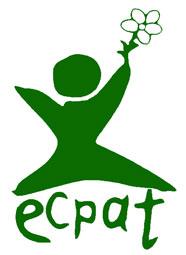 ATTA attempts to keeps an eye on issues that that are important - to our industry and in plain human terms. We've learned more about ECPAT (End Child Prostitution, Pornography, and Trafficking) in recent months and the compelling work they're doing with the CODE - a code formed for specifically tourism companies to establish policies that may be incorporated into organizational ethical codes to prevent child exploitation. Our increasing awareness of the issue prompted AdventureTravelNews Assistant Editor, Nicole Petrak, to get in touch to learn - and share - more with the global adventure tourism community. Here's what we've found:
ATTA attempts to keeps an eye on issues that that are important - to our industry and in plain human terms. We've learned more about ECPAT (End Child Prostitution, Pornography, and Trafficking) in recent months and the compelling work they're doing with the CODE - a code formed for specifically tourism companies to establish policies that may be incorporated into organizational ethical codes to prevent child exploitation. Our increasing awareness of the issue prompted AdventureTravelNews Assistant Editor, Nicole Petrak, to get in touch to learn - and share - more with the global adventure tourism community. Here's what we've found:
- Assistant Editor's Note: ATTA recently published a release about two important public awareness campaigns by ECPAT (End Child Prostitution, Pornography, and Trafficking), the Code of Conduct and TassaTags. We followed up with Angeline Diamond, speaking on behalf on ECPAT, to explore what specific awareness and actions can be embraced by adventure travel professionals and organizations to fight against the global sex trade of children.
Angeline: Some signs that tour operators can look for come in the form of body language. When they see children who are related to adults, the child will show affection, be alert, and comfortable walking around freely. Children who are not related to the adults may display signs of nervousness and stand close to the adult. Additionally, staff can try to identify whether the adult and child look related, this is more apparent if the child is of the local ethnicity or wearing local attire. Lastly, a more obvious sign is if staff finds/sees materials that display sexual exploitation of children, such as pornography.
ATTA: Aside from committing their organizations to the Code of Conduct, what can adventure tour operators and other adventure travel professionals do to prevent these tragedies?
Angeline: Tour operators can implement as many steps of the Code as possible by creating ethical policies, raising awareness of CSEC, and training staff. They can also advertise their opposition of customers sexually exploiting children on their website or in their advertising materials. This creates an uncomfortable atmosphere for exploiters and they will think twice before exploiting children or even travelling for exploitation at all. Additionally, because some travelers believe sexual relations with minors overseas is legal, tour operators can inform their customers that it exploiting children is in fact illegal everywhere in the world.
One public awareness campaigns that ECPAT-USA has launched is TassaTags. TassaTags are luggage tags that “allow travelers to reclaim their luggage while reclaiming children’s lives.” TassaTags are an innovative way to increase public awareness about sex tourism. By selling or promoting TassaTags, an organization can help raise public awareness, which is a great step in preventing these tragedies.
ATTA: If a tour operator suspects that a client or supplier is involved in a situation like this, what steps should they take to respond?
Angeline: This will vary based on the policy of the organization and the country in which the exploitation occurs. The Code is organized so that travel organizations can create policies based on their personal preference. Generally speaking, if a staff member suspects CSEC, they should get as much information as possible before going to the proper authorities (police, hotel management, embassy or consulate, tourism authorities, child protective services). Some hotels recommend that staff, who suspect CSEC request identification for the minor to establish age and relation to the customer. If the customer cannot produce such information, staff is instructed to refuse entry of the minor.
ATTA: What are the unique challenges and opportunities you see the adventure travel industry having in dealing with this issue?
Angeline: Challenges for the adventure travel industry are that child sex exploiters include “situational” sex abusers who are age indiscriminate and may want to experiment with foreign partners. Situational sex abusers convince themselves that since they are far from home, morals do not apply and that sex with child partners is more acceptable in their foreign location. Since adventure travelers tend to go out of their comfort zone and travel to exotic locations, they may be at risk for adopting these thought processes. Additionally, many exploiters think the money or food they give children in exchange for sex improved their poor living conditions. Since adventure travel may bring travelers to less developed countries, they may be prone to thinking this way. It may also be difficult for adventure travel companies to avoid children who approach their travelers because local children know that some travelers can purchase them for sex.
Opportunities are vast because the adventure travel industry is present all over the world. The industry has the opportunity to push local partner hotels and transportation services to implement the Code or its practices by leveraging their business. The adventure travel industry can also raise awareness on a large scale of the problem of CSEC. By producing a consumer demand for responsible practices, we can influence companies to take proactive steps in ending the commercial sexual exploitation of children. Furthermore, the adventure travel industry may become a leader within the travel industry by adopting The Code and speaking out about the issues.
ATTA: Do you have suggestions for industry professionals to positively and proactively educate their clientele about this issue?
Angeline: The Code has seen successes in informing clientele through visitor’s guides and travel catalogues that have sections explicitly about CSEC. Also travel organizations can create awareness raising posters to display in their reception area or website. Again, the Code tries to give companies as much freedom to create educational materials so that each company can implement the Code as they see fit.
As mentioned earlier, an innovative tool to educate clientele about the issue is TassaTag. TassaTags are “consumer friendly” because they approach the issue with a positive outlook on how to create change. Furthermore, the profits support The Regina Center in Nonghki , Thailand, who participates in grass-root campaigns to prevent sexual exploitation, and ECPAT-USA, who conducts research, advocacy, and public awareness campaigns to end sexual exploitation.
 Angeline Diamond is a senior majoring in Global Studies at Loyola University in Baltimore, MD. As a junior, she was introduced to the topic of human trafficking in a class, and the topic has completely changed her outlook on life. As a social media consultant for ECPAT-USA, she conducts research and produces programs to spread public awareness about human trafficking. You can email her at [email protected] if you would like to get more involved with any of the campaigns described above.
Angeline Diamond is a senior majoring in Global Studies at Loyola University in Baltimore, MD. As a junior, she was introduced to the topic of human trafficking in a class, and the topic has completely changed her outlook on life. As a social media consultant for ECPAT-USA, she conducts research and produces programs to spread public awareness about human trafficking. You can email her at [email protected] if you would like to get more involved with any of the campaigns described above.